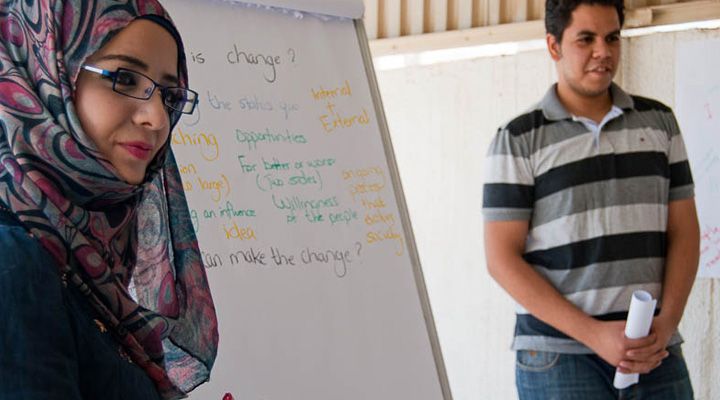Since establishing the Danish-Arab Partnership Programme (DAPP) in 2003, Denmark’s relations with the Middle East and North Africa (MENA) have steadily improved, according to a new evaluation report.
The report (here in English), conducted by the Danish consultancy NIRAS in co-operation with British Integrity Research, showed that DAPP has proved to be a relevant foreign policy instrument and an effective development catalyst.
“The choice of DAPP´s strategic objectives focusing on reform and dialogue is relevant in light of the complex dynamics in the four MENA countries studied,” the report concluded.
“Having a twin objective is assessed to be a particular strength, as the program has facilitated interaction, co-operation and knowledge exchange and, in turn, served as a platform to pursue progress towards reforms. Support for reform processes are in high demand amongst the groups that DAPP targets.”
Since 2003, DAPP has supported initiatives in 11 nations in the MENA region – focusing in particular on efforts in Egypt, Yemen, Jordan, Tunisia, Morocco, Syria and Libya – and it has played a part in Danish foreign policy in the area.
READ MORE: Budget cuts to impact on Danish foreign aid
Room for improvement
Total funding for DAPP has been about 1.5 billion kroner, and the support has been spread out over four key themes: human rights, good governance, equality and, finally, knowledge society, economic growth and job creation.
But despite the positive reviews, the report also contended that DAPP could still benefit from reassessing some of its objectives.
“Taking into consideration that Denmark is a relatively small player contributing a limited amount of resources in a highly complex region, the DAPP objectives are, however, assessed to be too ambitious,” the report concluded.
“The objectives would benefit from being clarified and reformulated to realistically match Denmark’s current opportunities to contribute to reform in and dialogue with the region, taking note of the available resources.”















